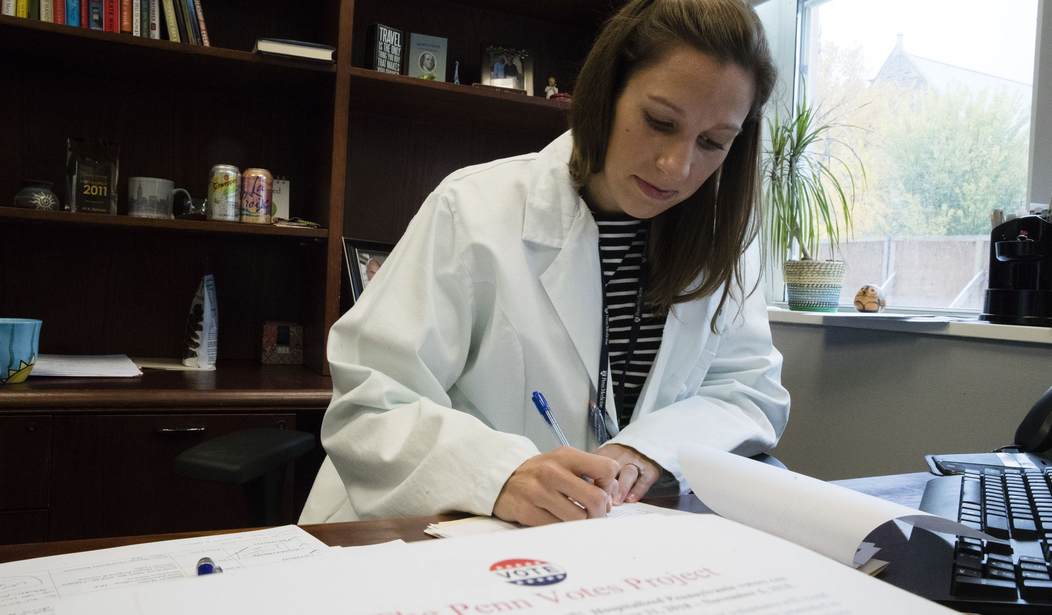Researchers in the below-cited meta-analysis, synthesizing data from no fewer than 34 clinical trials, looked at three treatment approaches for patients with depression:
- Antidepressant medication-only
- Psychotherapy-only
- Combination antidepressant and psychotherapy
Related: MASSIVE Academic, Scientific Fraud Exposed
They found that not only is psychotherapy alone more effective than antidepressants alone, but that psychotherapy alone is also better at treating depression than the combination of the two.
Via Psychological Medicine (emphasis added):
Antidepressant medication (ADM)-only, psychotherapy-only, and their combination are the first-line treatment options for major depressive disorder (MDD). Previous meta-analyses of randomized controlled trials (RCTs) established that psychotherapy and combined treatment were superior to ADM-only for MDD treatment remission or response. The current meta-analysis extended previous ones by determining the comparative efficacy of ADM-only, psychotherapy-only, and combined treatment on suicide attempts and other serious psychiatric adverse events (i.e. psychiatric emergency department [ED] visit, psychiatric hospitalization, and/or suicide death; SAEs). Peto odds ratios (ORs) and their 95% confidence intervals were computed from the present random-effects meta-analysis.
Putting my tinfoil hat on, I may humbly suggest that the reason that SSRI antidepressants do not actually reduce suicide attempts is because they cause them.
Via Frontiers in Psychiatry (emphasis added):
The results showed that antidepressant exposure significantly increased the risk of suicide and suicide attempt when compared with no antidepressant usage among children and adolescents…
Among the antidepressants, SSRI use was associated with an increased risk of suicide and suicide attempt…
In addition, the risk of suicide and suicide attempt between SSRIs and other antidepressants was similar…
Clinicians should evaluate carefully their patients and be cautious with patients at risk to have treatment emergence or worsening of suicidal ideation (TESI/TWOSI) when prescribing antidepressants to children and young patients.
There are, of course, anecdotally and statistically, individuals who feel subjectively better when they are taking SSRI antidepressants, even though the serotonin deficiency theory of depression has now been conclusively debunked.
Via Molecular Psychiatry, 2022, (emphasis added):
Our comprehensive review of the major strands of research on serotonin shows there is no convincing evidence that depression is associated with, or caused by, lower serotonin concentrations or activity. Most studies found no evidence of reduced serotonin activity in people with depression compared to people without, and methods to reduce serotonin availability using tryptophan depletion do not consistently lower mood in volunteers. High quality, well-powered genetic studies effectively exclude an association between genotypes related to the serotonin system and depression, including a proposed interaction with stress. Weak evidence from some studies of serotonin 5-HT1A receptors and levels of SERT points towards a possible association between increased serotonin activity and depression. However, these results are likely to be influenced by prior use of antidepressants and its effects on the serotonin system. The effects of tryptophan depletion in some cross-over studies involving people with depression may also be mediated by antidepressants, although these are not consistently found.
Placebo’s a hell of a drug.
Anyway, continuing via Psychological Medicine:
Thirty-four relevant RCTs were included. Psychotherapy-only was stronger than combined treatment (1.9% v. 3.7%; OR 1.96 [1.20–3.20], p = 0.012) and ADM-only (3.0% v. 5.6%; OR 0.45 [0.30–0.67], p = 0.001) in decreasing the likelihood of [severe adverse events] in the primary and trim-and-fill sensitivity analyses. Combined treatment was better than ADM-only in reducing the probability of SAEs (6.0% v. 8.7%; OR 0.74 [0.56–0.96], p = 0.029), but this comparative efficacy finding was non-significant in the sensitivity analyses. Subgroup analyses revealed the advantage of psychotherapy-only over combined treatment and ADM-only for reducing SAE risk among children and adolescents and the benefit of combined treatment over ADM-only among adults. Overall, psychotherapy and combined treatment outperformed ADM-only in reducing the likelihood of SAEs, perhaps by conferring strategies to enhance reasons for living. Plausibly, psychotherapy should be prioritized for high-risk youths and combined treatment for high-risk adults with MDD.
Methinks the pharmaceutical industry won’t endorse these findings, notoriously selective as it is about how to best Respect the Science™.










